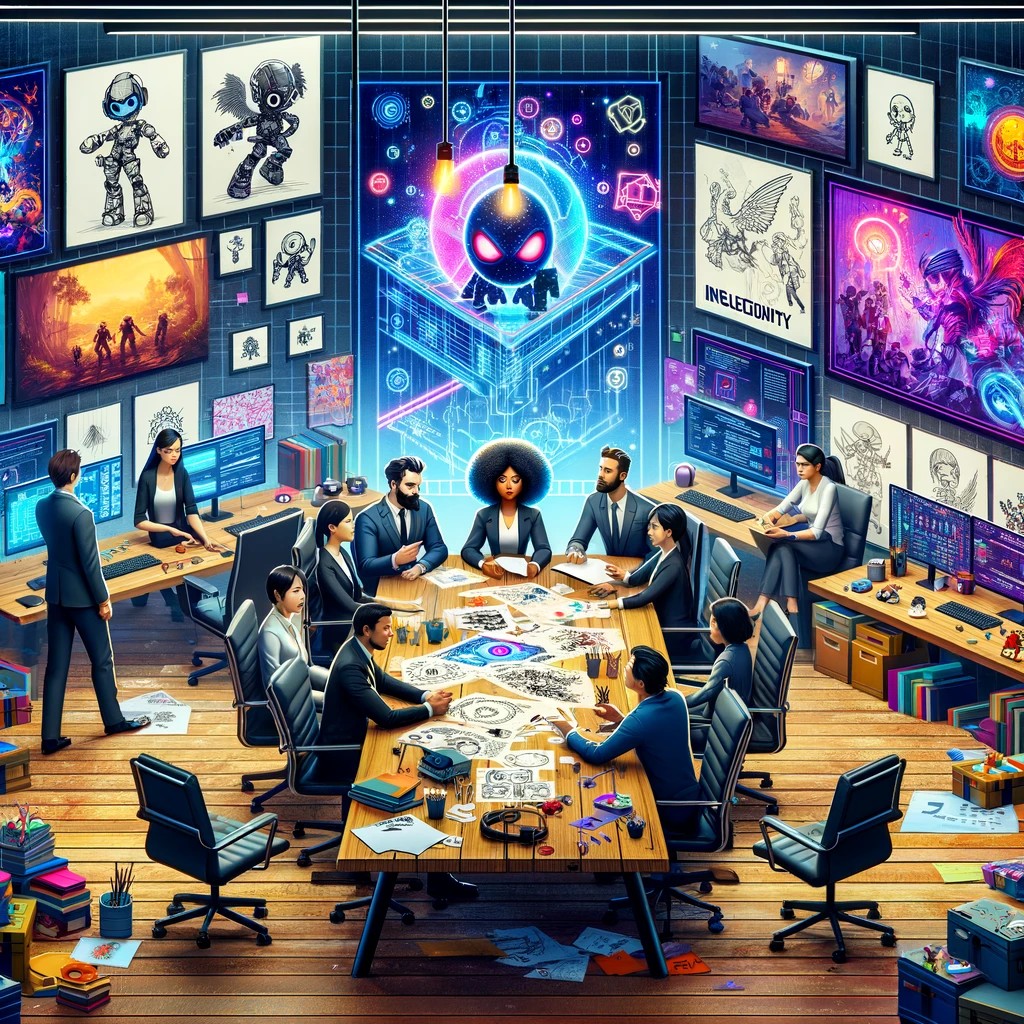The video game industry, a powerhouse of creativity and innovation, relies heavily on intellectual property (IP) protection to safeguard its valuable assets. From code and graphics to characters and storylines, IP law plays a crucial role in fostering innovation and ensuring that developers can reap the rewards of their creative endeavors.

Our firm, specializing in technology and entertainment law, offers this analysis of the key aspects of IP in video games.
Copyright is the foundation of IP protection in game development. Copyright automatically protects original works of authorship as soon as they are fixed in a tangible medium. In video games, this protection extends to various elements, including source code, game design documents, artwork, music, sound effects, character designs, storylines, and dialogue. Copyright grants exclusive rights to the copyright holder to reproduce, distribute, display, perform, and create derivative works.
Protecting characters and storylines is crucial for maintaining a game’s identity and preventing unauthorized use. Copyright protects the specific expression of characters and storylines, not the underlying ideas or concepts. For example, while the general idea of a space marine fighting aliens is not protectable, the specific design of a particular space marine character, with unique visual features and a distinct backstory, can be protected by copyright.
Trademarks are essential for establishing and protecting a game’s brand identity. Trademarks protect words, phrases, symbols, and designs that identify and distinguish the source of goods or services. In the gaming industry, trademarks are used to protect game titles, logos, character names, and other branding elements. Registering trademarks provides stronger legal protection and helps prevent others from using similar marks that could cause consumer confusion.
Patents, while less common in the gaming industry than copyrights and trademarks, can be used to protect novel and non-obvious inventions related to game mechanics or technologies. For example, a developer could potentially patent a unique control scheme, a new rendering technique, or a novel method for online multiplayer interaction. Obtaining a patent requires a rigorous application process and involves public disclosure of the invention.
Protecting game mechanics presents a unique challenge. Copyright protects the expression of ideas, not the ideas themselves. This means that while the specific code and design of a game mechanic can be protected by copyright, the underlying concept or gameplay mechanic itself is generally not protectable. This distinction can be difficult to navigate, as there is often a fine line between an idea and its expression.
Trade secrets provide another form of IP protection, particularly for confidential information that provides a competitive edge. In game development, trade secrets might include source code, game design documents, development tools, and marketing strategies. Protecting trade secrets requires implementing appropriate security measures and confidentiality agreements.
Licensing is a common practice in the gaming industry, allowing developers to incorporate third-party content, such as music, characters, or other intellectual property, into their games. Clear and comprehensive licensing agreements are essential for defining the scope of permitted use, payment terms, and other important details. Proper licensing helps avoid copyright infringement and other legal disputes.
Enforcing IP rights is crucial for protecting developers’ investments and preventing unauthorized use of their work. This can involve sending cease and desist letters, filing copyright or trademark infringement lawsuits, or pursuing other legal remedies. Alternative dispute resolution methods, such as mediation and arbitration, can also be effective in resolving IP disputes.
Given the global nature of the gaming industry, developers must consider international IP protection strategies. Understanding and complying with the different IP laws of various countries is essential for securing and enforcing rights worldwide. This often involves filing for copyright and trademark protection in multiple jurisdictions.
Emerging technologies like augmented reality (AR) and virtual reality (VR) present new IP challenges for the gaming industry. These immersive technologies raise questions about virtual property ownership, user-generated content, and the application of existing IP laws to virtual environments. Developers and legal professionals must adapt their IP strategies to address these evolving digital landscapes.